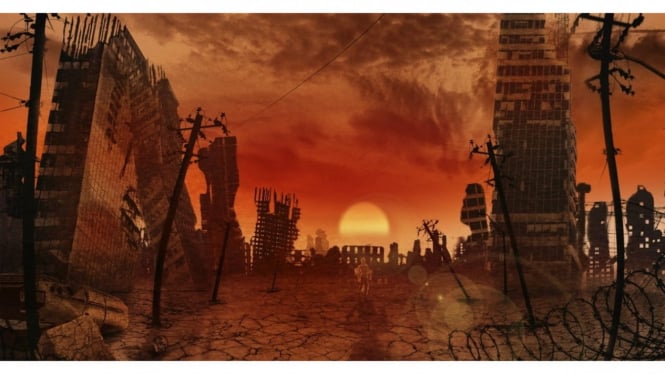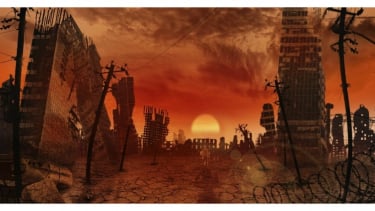Video Game Study Reveals People Behaviour When the World Ends
- Crosswalk
VIVA – Studying the end of the world has become quite difficult as well as how humanity will react before doomsday. If you try it when the world hasn't ended, you probably won't get an accurate impression, given that the world hasn't actually ended yet.
One team tried to find another way to study humans when doomsday arrives using a computer game. The team used the open-world, massively multiplayer online role-playing game (MMORPG) ArcheAge for their experiment.
In the study that took place during the beta test, players were left to play as usual, completing missions, exploring, leveling up, and hoarding equipment as desired.
However, at the end of 11 weeks, players learned that the server would be wiped and all their progress and characters lost.
"And thus, the outcome (or penalty) of players' in-game behavior in the last few days loses its meaning," the team wrote in their non-peer reviewed preprint paper.
Ilustrasi kiamat.
- U-Report
They believe it will help answer the age-old question of whether humans will abandon moral ideals as doomsday approaches.
Moreover, the team analyzed more than 270 million records of player behavior in the game, such as level-up data and quest logs, to see if player behavior changed when they knew the world was ending.
The game remained surprisingly peaceful, except for a few strangers who chose to go on a killing spree.
"Our findings suggest that there is no clear change in behavior, but some outliers are more likely to exhibit anti-social behavior," the team wrote.
The team also found players' behavior contradicted the saying, 'even if I knew the world would go to pieces tomorrow, I would still plant my apple tree', in that they neglected character progression, showing a drastic drop in mission completion, leveling, and changeability by the end of the beta test.
Essentially, when the world is about to end, you probably won't be spending much time on personal development.
The team wrote that people who stuck around until the end of the game tended to be the most peaceful, perhaps the most loyal to the game.
Whereas people who leave the game early of their own accord, which the team calls 'churners', tend to exhibit the most antisocial behaviors such as killing other players, as they lose their sense of responsibility and attachment to the game.
Overall, although the team emphasized the study was certainly limited by the fact that it took place in a video game, the end of the world was quite peaceful and even positive with the emergence of pro-social behavior towards the end.
The sentiment of social grouping-specific chat channels tending to be 'happier' as the end of time approaches is the first indication of pro-social behavior where existing social relationships are likely being strengthened," reads the team's conclusion.
Furthermore, they saw that players who survived to the end of the world showed a peak in the number of small groups while new social relationships were being formed.
The study is published in Proceedings of the 26th International Conference on World Wide Web Companion and a preprint version via arXiv.





























